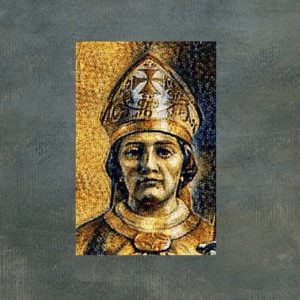Our Stories: Connections to God Through One Another
RESOURCE LIBRARY UPDATE:
In the three months since Autism Consecrated put out the call for presentations, we have noticed something interesting. In the same way most of what we do tends toward the personal, the human and the deeply subjective, so too has our pursuit of assembling a symposium on autism and spirituality. Our in-person event, “Autism Through the Eyes of God” never made it past the first planning meeting, thanks to the worldwide pandemic. Our next thought was to shift our focus to the online platform, sending out an open call for presentations which we intended to curate and post in a freely accessible resource library on our website. The result?
Barely anything.
But in the meantime, we have engaged behind the scenes of the website in multiple conversations about autism, spirituality and disability theology which keep coming back to the same theme: OUR STORIES.
In the broad scheme of looking at autism’s belonging in the Body of Christ, there is no formula to disseminate, no paradigm to discuss, other than that of merely being human. There is nothing more fundamental to building an inclusive spirituality than to be with each other and enter into one another’s stories. The act of being-with invites us to draw closer through empathy and mutual vulnerability, and to experience God’s presence – first in one another, then in our midst, and then in the depths of our own heart.
Anything beyond this runs the risk of being formulaic, impersonal and not able to fit the actual needs of the person in front of us… or the needs we ourselves have.
We have known this since the inception of the Mission of Saint Thorlak and its expansion into Autism Consecrated. We have often repeated our catch-phrase when asked what is needed in our churches to accommodate autistic people: “less programming, more relationship.” Likewise, when I was offered the task of writing St. Thorlak’s biography, I opted to tell his story as a person rather than give another academic treatment of his achievements or attempt to parse out those aspects of historical record which suggest he had autism. Historical fact is relevant, but in presenting St. Thorlak as a man to whom we can relate even eight hundred-plus years after his lifetime, it seemed most relevant to simply tell his story. What good are facts without a personal reason for wanting to know them? That same question applies to any and every person, autistic or not, who approaches our faith communities. What good is gathering facts, diagnostic labels, symptoms, needs, accommodations – without a personal reason for wanting to know them? Chances are, if we get to know the whole person first, some of those other facts quickly become superfluous, even if that flies in the face of what we have been told are “best practices to follow in helping autistic people.”
In truth, we hoped to gather essays and video presentations discussing these points. It hasn’t happened. We did, however, receive a number of submissions of personal stories, which is, frankly, exactly perfect.
For the academics among us (including myself, I confess), there are discussions and academic papers in the field of disability theology which are accessible in book format, formal presentations and websites online. We are striving to continuously maintain and add titles of interest in our Further Reading section, to keep those conversations going. Furthermore, we actively welcome reaching out to other like-minded groups and individuals for dialogue, discussion and input to our resources. One such organization, the Kairos Forum, is headed by Cristina Gangemi, whose research ties directly in with the point we are making.
And so, once again, we extend to everyone here a call to contribute.
Wanted: OUR STORIES – How have we encountered God? What helps, or hinders, us from encountering God in our daily lives, or our faith communities? How would we describe our spiritual lives?
Format: However we best share ourselves. Words, visual art, music, or any other channel of expression.
What to do: Send them to Autism Consecrated along with a signed Release Form (required for any submission to be posted).
We will begin posting stories soon where our Resource Library would have been. We look forward to hearing from you!

